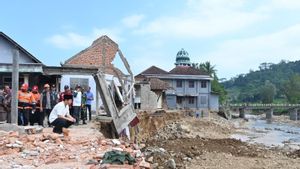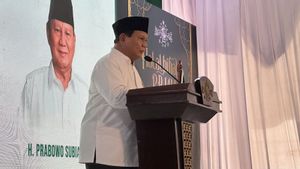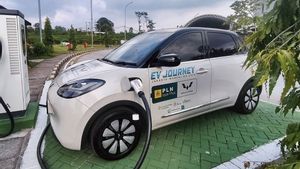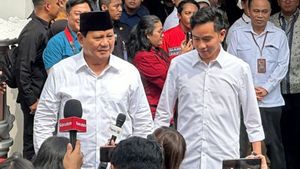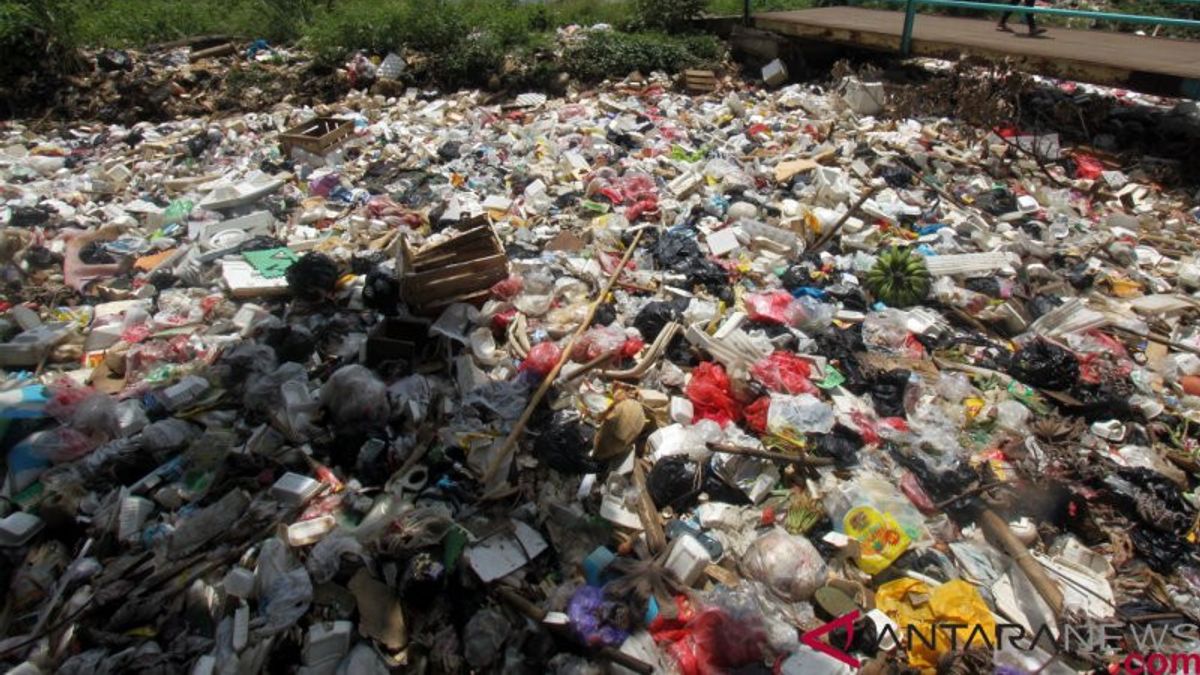
JAKARTA - Deputy Governor of DKI Jakarta Ahmad Riza Patria through his Instagram account @aripatria said the volume of waste transported from rivers in Jakarta from October to December 2021 reached 121,433.53 meters3. This number exceeds the area of the National Monument (Monas) which reaches 80.3 hectares and is 132 meters high.
Based on data from the DKI Jakarta Environment Agency (DLH) during the period from October to December 2021, the volume of waste transported from rivers in Jakarta is equivalent to 2.5 times the Monas building. According to Reza, piles of garbage in Jakarta are one of the main reasons for flooding and most of the waste is plastic.

Based on data obtained from the Indonesian Plastic Industry Association (INAPLAS) and the Central Statistics Agency (BPS), plastic waste in Indonesia reaches 64 million tons/year. A total of 3.2 million tons are plastic waste that is dumped into the sea. Plastic waste in Jakarta every day reaches 34 percent of daily waste in 2019. The average total daily waste in Jakarta in 2019 reached 7,702 tons and 10 billion plastic bags wasted into the environment per year or 85,000 tons of plastic bags.
Quoted from the Ministry of Maritime Affairs and Fisheries, Indonesia is in second place in the global plastic waste contributor in 2019 with 3.21 million metric tons/year, while China is in first place with 8.81 million metric tons/year.
Indonesian Plastic Management IndexPlastic Management Index or Plastic Management Index in a press release released that plastic management carried out in 25 countries shows that Indonesia in general is still inferior to Vietnam, Thailand, and Malaysia in terms of plastic management. On the other hand, in Asia Pacific, namely Japan, Australia, and China, they are in the top 10 in the world in plastic management. It is stated that the measurement of the Plastic Management Index (PMI) uses three pillars, namely the government system, existing systematic management capacity, and stakeholder involvement. Of the three, 12 indicators and 44 sub-indicators were compiled.
From the measurement results, only three countries in the Asia Pacific are in the top 10, namely Japan (number 2), Australia (7), and China (10). Europe still leads in global plastics management, while Asia lags behind.
While China, the world's largest plastic producer, was ranked 10th. This country, which was highlighted as a producer of plastic waste, is developing the capacity to manage plastic, but is lagging behind in stakeholder engagement.
Conditions in IndonesiaHow about Indonesia? In general, Indonesia ranks 16th behind Vietnam (11), Thailand (12), and Malaysia (13). Even less than Ghana (15). The thing that can be proud of Indonesia is in terms of stakeholder involvement which puts it at number 8.
Despite producing half the world's plastic, Asia lags behind in global plastic management efforts compared to Europe. So far, Europe leads the overall ranking largely thanks to the proactiveness of the EU and the region's ability to fund innovation and research. Asia-Pacific countries mostly occupy the middle position, followed by Latin American and African countries.
Pandemic TimeAccording to the Director General of Waste, Waste, Toxic and Hazardous Material Management at the Ministry of Environment and Forestry, Rosa Vivien Ratnawati, to date there are 22 districts and cities that have banned the use of single-use plastic bags. A number of reports from the local government stated that the regulations were quite effective in reducing the volume of plastic waste.
On the other hand, Rosa said, during the COVID-19 pandemic, the amount of waste piled into the landfill was reduced by 10-15 percent. This is because many people have a policy of working from home.

Although overall the amount of waste going to the landfill has decreased, according to Rosa, the volume of plastic waste from households has actually increased. The reason for this increase is the tendency of people to order food online. 90% of the food is packaged using single-use plastic.
In addition, during the pandemic, disposable masks have also become a new contributor to waste in Indonesia. Mask waste adds 0.1 percent of the existing pile of garbage in the community. In order to reduce this special pile of garbage, Rosa appealed to healthy people to wear masks for reuse.
Ban on the use of single-use plastic bagsThe ban on the use of single-use plastics is said by some parties to be a strategy for local governments to fulfill the mandate of Presidential Regulation Number 97 of 2017 concerning National Policies and Strategies for the Management of Household Waste and Types of Household Waste. This regulation mandates local governments to reduce waste by at least 30 percent and improve waste management by at least 70 percent by 2025.
DKI Jakarta has also banned the use of single-use plastic bags. The prohibition, which has been in effect since July 1, 2020, is stated in Governor's Regulation Number 142 of 2019 concerning the Obligation to Use Environmentally Friendly Shopping Bags in Shopping Centers, Supermarkets, and People's Markets.
The governor's regulation also explains sanctions for shopping centers, supermarkets, and people's markets that still provide single-use plastic bags. The sanctions are in the form of a written warning, forced money ranging from Rp. 5 million to Rp. 25 million, suspension of permits, and revocation of permits. The regulation was made based on the condition of the large amount of plastic waste found in Jakarta waters. From the World Bank report in 2018, plastic waste in Jakarta waters reached a composition of up to 29.5 percent.

Director of Waste Management of the Ministry of Environment and Forestry (KLHK) Novrizal Tahar said as quoted from Jakarta.go.id, there is a waste management approach taken by the government, namely minimal waste or eco-living, circular economy, as well as services and technology. Social entrepreneurs play an important role in the circular economy approach.
According to Novrizal, currently social entrepreneurs who do business to empower the environment are growing well in Indonesia. These social entrepreneurs are expected to be the backbone of the circular economy supply chain activities of the paper, plastic and metal recycling industry. This is because social entrepreneurs are able to manage waste properly and correctly.
He hopes that the local government, which has implemented regulations prohibiting the use of plastic bags since several years ago, can provide experiences or directions to other local governments. He also asked the local government to submit a reduction in the volume of plastic waste so that the public would know that the ban is aimed at protecting the environment.
The English, Chinese, Japanese, Arabic, and French versions are automatically generated by the AI. So there may still be inaccuracies in translating, please always see Indonesian as our main language. (system supported by DigitalSiber.id)




